Kidney stones or urinary stones are deposits of certain salts that form in the urinary system.
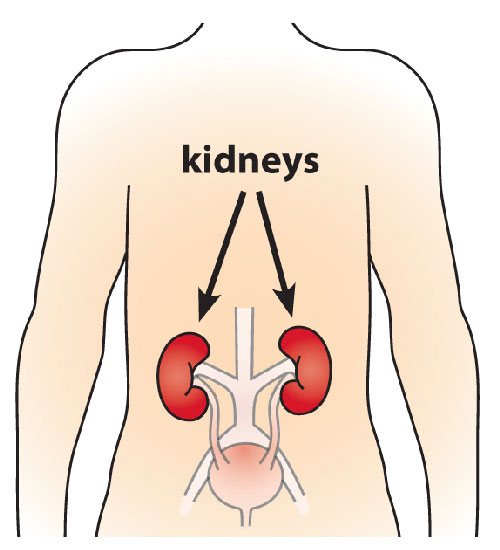
The main function of the kidney is to remove extra water and wastes from the blood and convert it into the urine. However, sometimes, lack of fluid and excess of some salts can cause their deposits to build up and stick together in the kidney. These deposits begin as tiny crystals and may gradually grow into bigger particles. These are called kidney stones, also known as urinary stones, renal calculi, nephrolithiasis, or urolithiasis. The stones thus formed may stay in the kidney or move down into the urinary system (that is in the ureter, bladder, or urethra) thereby obstructing the flow of urine. Some stones can potentially damage the kidney by causing urinary obstruction, infection or even kidney failure. Hence they need to be treated in time, even though they are no longer causing pain.
At Aashray Urology Institute, the first NABH accredited standalone urology hospital in Gujarat; all the standard treatment options recommended worldwide are available as we understand that different types of urinary stones need different treatment options ideally.

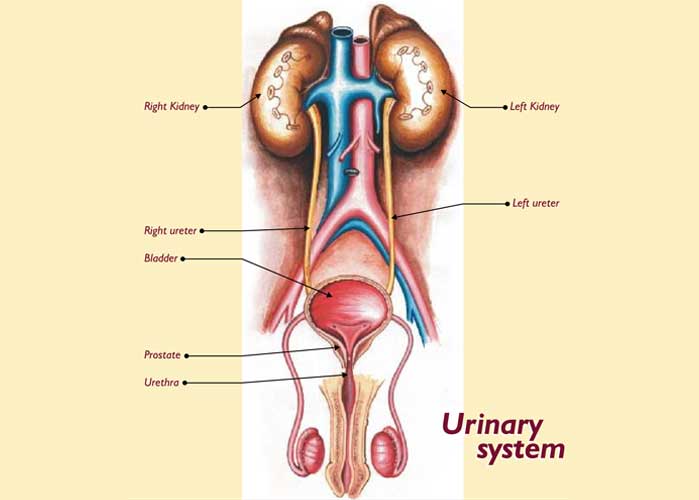
A stone’s size may vary from as small as the gravel of sand to as large as an egg. It may be smooth and round or rough with serrated edges. Based on their composition, the five major types of kidney stones are Calcium Oxalate, Calcium Phosphate, Struvite, Uric Acid and Cystine Stones.
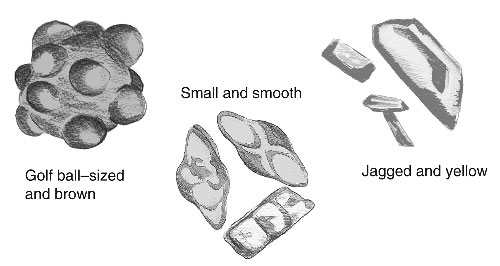
Anyone can develop kidney stones; however, the following are the factors that increase the risk to develop them:
Dr. Ashit Shah, the chief urologist at Aashray Urology Institute, has listed down symptoms of kidney stones. They are as follow:
Not all patients with kidney stones have symptoms. Large stones do not cause pain as they are dormant in one place. Such stones may not be detected for a long time, maybe until the kidney is damaged. They could be incidentally detected during the investigation for some other ailment. Mobile small stones or granules (crystals) passing down the ureter do cause pain, however.
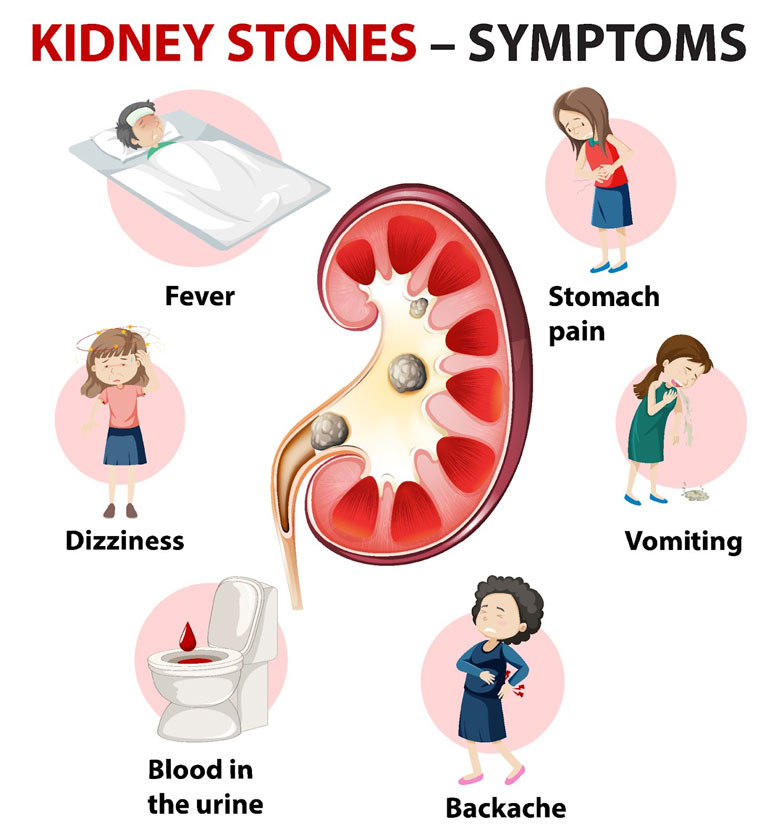
If a person is suspected of having a urinary stone; after clinical examination, he/she will usually be asked to get a urine examination, blood test, plain X-ray and a sonography done. Occasionally a CT scan may be asked for. These tests suffice to diagnose stone disease in the majority of the cases.If the stone needs interventional treatment, then the patient will need to undergo a test called 'Intravenous Urography or C.T. Urogram' wherein a dye is injected into the patient’s vein and a series of X-rays or scans are taken to know the individual function of each kidney and the detailed anatomy of the urinary system.
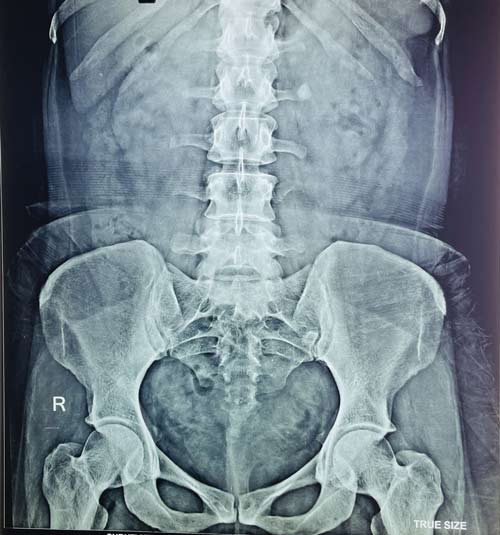
No, all urinary stones do not need interventional treatment. Small size stones pass naturally without damaging the urinary system. In more than 60% of cases, stones less than 6 mm size pass out on their own. These stones are prescribed conservative treatment.
The stones that need interventional treatment are the stones that are not likely to pass on their own, those with severe symptoms/significant obstruction/urine infection or those associated with abnormal urinary tract anatomy. However, it is important to consult a urologist and have a checkup to determine whether the interventional treatment is needed or not.
The options for kidney stones/urinary stones vary from conservative management to interventional management.
Conservative or non-operative management is an expectant therapy wherein urologist feels that-

The Interventional or operative line of treatment is chosen when -
Interventional treatment includes Non-invasive options like Shock Wave Lithotripsy, RIRS and Ureteroscopy; Minimally invasive options like PCNL and Invasive options like Open Stone Surgery.
Shock wave lithotripsy, traditionally known as extracorporeal shock wave lithotripsy, is a non-invasive painless procedure that uses sound waves to fragment stones in the urinary system.
This procedure is good only if it is selected for small, soft stones. In larger and hard stones, lithotripsy will require multiple stages or will not work and such stones may be best treated by endoscopic procedures like R.I.R.S. or P.C.N.L.
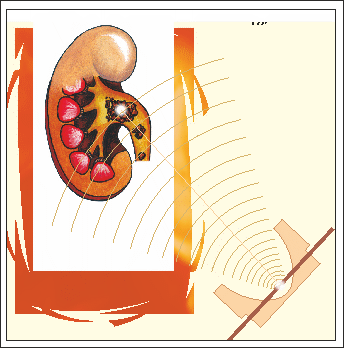
Ureteroscopy or U.R.S. is an endoscopic procedure performed using a small telescope that is passed through the urethra and into the ureter to remove a stone. It is primarily meant for stones in the ureter.
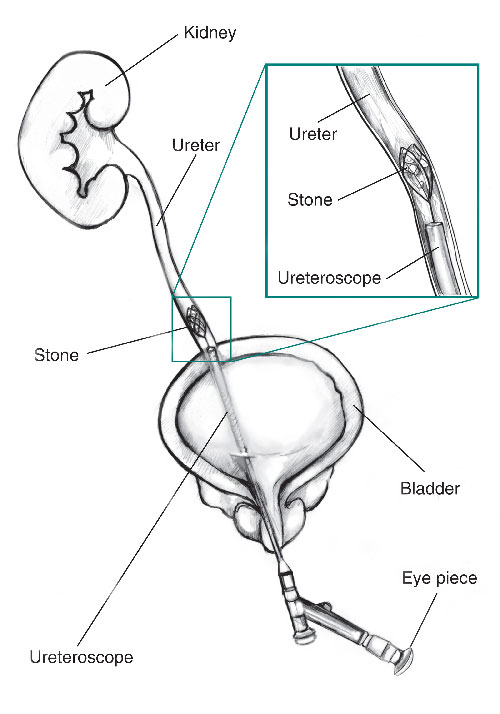
Retrograde IntraRenal Surgery (R.I.R.S.) is an endoscopic procedure wherein a small, flexible telescope is passed through the urethra and the ureter into the kidney to treat the stone(s) in the kidney. R.I.R.S. is the latest treatment option in the world for stones situated in the kidney. It has gained acceptance the world over and is expanding its indications very fast.
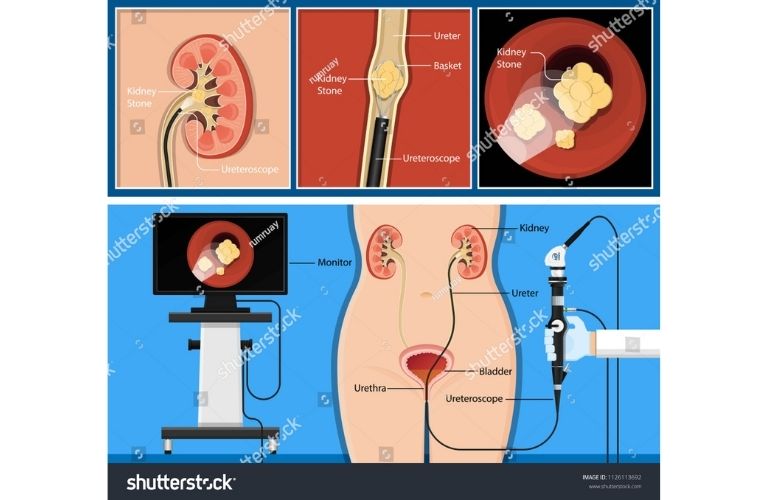
When the stone in the kidney is too big/hard, P.C.N.L. is another surgical option. In this treatment, small instruments are put into the back through a small incision with the help of a telescope to suck or pluck the stones out.
Laparoscopic method of stone removal is also an option; however, in a good endourology setup, almost any stone can be removed by the above mentioned procedures, thereby obviating the need for laparoscopic treatment. Laparoscopic treatment is not preferable over other minimally invasive treatment options as it requires general anaesthesia, multiple punctures on the body, longer operative time, considerable morbidity, and occasional mortality.
Open stone surgery is an outdated procedure. It is quite painful, carries the risk and morbidity of major surgery, a big scar, long hospital stay and a longer recovery period. It is problematic if the patient has to be re-operated in the future.
If you have been advised for stone surgery, you should check the following:
If the answer to any of these basic questions is adverse, you should rethink…..
We, At Aashray, Offer……..
In other words, at AASHRAY, you are in expert and safe hands.


Dr. Ashit Shah is a senior consultant Urologist heading Aashray Urology Institute. After completing his M.B.B.S. and M.S. in General Surgery, he was awarded Diplomate of National Board (D.N.B.) in Genito-Urinary Surgery by the National Board of Examinations, New Delhi. He earned his Diplomate in Laparoscopic Urology from Louis Pasteur University, Strasbourg, France in the year 2006. Dr. Shah has a special interest in Endo-Urology, especially Urolithiasis i.e. Urinary Stone Disease. Having spent more than 27 years in the profession of Urology, he has experience of over 75,000 urological consultations and more than 15,000 surgeries. Being counted amongst the torch bearers of ethical and transparent medical practice in the city of Vadodara, he was conferred ‘Inspiring Urologist Award’ for the year 2019 by The Economic Times.